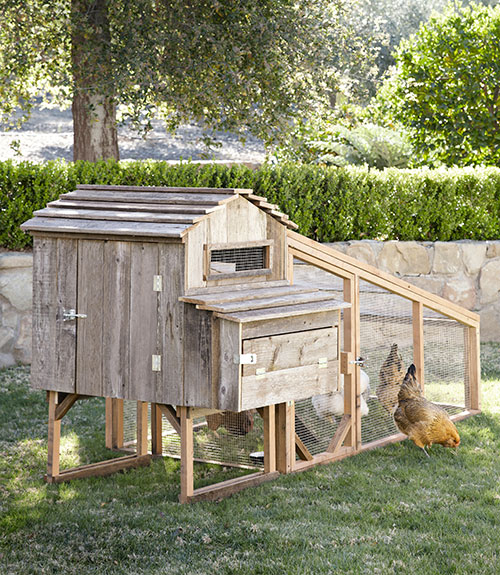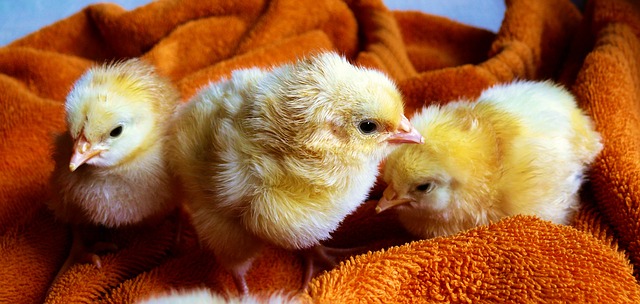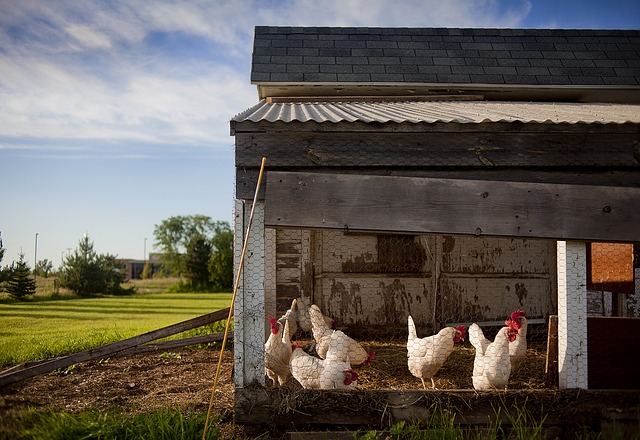Even if you’re soft at heart, name your flock, refer to them as “the girls” and just can’t bring yourself to raise chickens for meat, they are very useful as livestock. You can just raise chickens for eggs and, at the same time, make use of their poop as awesome garden and vegetable fertilizer and take advantage of their love of weeds. Plus they tend to be a bit loopy, so their antics are guaranteed to make you smile. We’ve also compiled the best egg laying chickens in our Guide to Backyard Chickens & Raising Chickens.
Tip 1: Check Your Local Poultry Raising Laws
This seems pretty obvious, and you’re probably thinking “Well, d’uh!” But checking local regulations, particularly in built-up areas, is a must before you bring your chicks home – and it’s something many people forget to do. Some towns and cities have strict laws regarding raising chickens – some don’t allow it at all in residential areas, while others forbid the keeping of a cockerel. So, make sure you check.
Tip 2: Make Sure You Have Plenty of Space
There’s lots of bad info out there on raising chickens in a small coop in your backyard. Chickens need space to roam around. Raising chickens isn’t about how many chickens you can fit into a small space – this practice won’t get you more eggs – you’ll have sickly hens and fewer eggs. It’s not much different from raising battery hens. Even if you can’t let them roam freely around your garden during the day because they’ll eat all your prize-winning veggies, they need a decent sized run that allows them to straighten the wings, stand up straight, and run around in for when they’re not in their coop. According to Virginia’s Cooperative Extension’s Small Poultry Housing Requirements, chickens need at least 2 square feet of space inside a coop per bird, and 10 feet of outdoor space per bird. Basically, chickens like space.
Tip 3: Make Sure the Space is Secure for Raising Chickens
When you’re raising chickens for eggs or meat, or even just as pets, wherever they have access to needs to be fully secure. Chickens have an awful lot of predators – including raccoons, dogs, birds of prey, coyotes – all kinds of predatory creatures rate chicken and chicken eggs high on their list of favorite foods. So you have to keep them safe. Give them a secure coop and run that provides overhead cover as well to fend off birds and climbing critters. Don’t just rely on chicken wire either – raccoons, for example, can get their arms through standard chicken wire easily, so go with finer anti-predator mesh.
Tip 4: Get a Large, Safe Coop
If you’re just starting to raise chickens, it’s advisable to go with a pre-made coop and run, or, if you have decent DIY skills, at the very least follow a good quality schematic. That way you know your coop is safe and secure. If your coop has windows, make sure they are covered with fine mesh to deter predators.

Image courtesy of Pets4Homes
Tip 5: Make Use of Their Poop
Many people who raise chickens also grow their own fruit and vegetables or have a garden full of colorful plants. So, stay green and organic and use the waste your chickens produce as fertilizer. Clean out the coop and run regularly and add the straw and poop to your compost bin. Once it’s rotted down, it makes fabulous, organic, nutrient-rich fertilizer.
Tip 6: Use Your Chickens as Winged Weed Wackers
Chickens are weed-munching machines, too, so, providing you have a secure, movable run, you can stick your chickens in said run over a patch of weeds and the girls will take care of the weeds and their seeds, too.
Tip 7: Do Your Research
Make sure you do your research and read as much as you can from reputable books and websites. Don’t just read a couple of random articles or blog posts. Make sure your source knows what they’re talking about. There’s a huge amount of things to take into consideration, so read a good guide to raising chickens and find a decent, knowledgeable source for tips on raising chickens.
Chicken Breeds
Are you raising chickens for eggs, for meat, or purely as pets? You need to decide which category you fall into and choose your breed according to their purpose and the climate in which you live.

Image courtesy of TheMetro
Tip 8: Choose Live Chicks Not Eggs
Raising chickens for beginners is difficult enough, so choose live chicks rather than fertilized eggs to start with. You don’t have to worry about incubation and a reputable supplier will sex the youngsters for you so you don’t end up with too many roosters.
Tip 9: Snack Time
Aside from giving a high quality chicken feed, it’s nice to give your chickens natural, organic goodies as a treat – it also saves you money. They love weeds, fruit, and vegetables. Chickens also hoover as many insects as they possibly can. You can further supplement their diets with live or dried meal worms (yummy), as they are very high in protein, so make a good choice during a moult. Pumpkins and pumpkins are also exceptionally nutritious, and chickens adore them. Remember, if you’re foraging for food items for your chickens to pick them in rural locations that aren’t subject to much traffic, as you don’t want to feed your girls polluted greens.
Ever considered electric netting for your beloved farm animals? Check out www.electricnetting.com.au.
Extended Reading
Guide to Backyard Chickens & Raising Chickens
The lady in this video sums up raising chickens fabulously.

